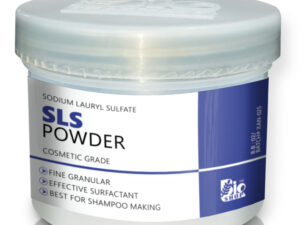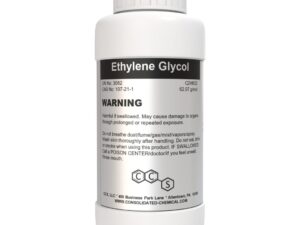Description
Polysorbates: The Unsung Heroes of Modern Products
You might not recognize the name, but polysorbates are likely playing a crucial role in your daily life. From the food you eat to the lotions you use, these versatile ingredients are quietly working behind the scenes to improve the texture, stability, and effectiveness of countless products. But what exactly are polysorbates, and why are they so widely used?
Polysorbates are a class of nonionic surfactants, meaning they have the ability to help mix oil and water-based ingredients together. This property stems from their unique molecular structure, which features both water-loving (hydrophilic) and oil-loving (lipophilic) components. Think of them as tiny matchmakers, bridging the gap between substances that naturally repel each other.
How They Work Their Magic:
This emulsifying prowess is what makes polysorbates so valuable. When added to a mixture of oil and water, they position themselves at the interface, with the hydrophilic end interacting with the water and the lipophilic end interacting with the oil. This reduces surface tension, allowing the two phases to blend more easily and remain stable over time.
Polysorbate 80: A Star Player:
One of the most common and well-researched members of the polysorbate family is Polysorbate 80. It’s a viscous, water-soluble liquid with a mild odor and taste. Its effectiveness and safety profile have made it a popular choice in a wide range of industries:
- Food Industry: Polysorbate 80 acts as an emulsifier in ice cream, preventing the formation of large ice crystals and contributing to a smoother texture. It’s also used in baked goods, helping to create a more even distribution of ingredients and improve the overall quality.
- Pharmaceutical Industry: Polysorbate 80 plays a crucial role in stabilizing drug formulations and improving their solubility. This is particularly important for drugs that are poorly soluble in water, as it allows them to be effectively delivered to the body. It’s also used in vaccines to help stabilize the antigens and ensure they remain effective.
- Cosmetics and Personal Care: You’ll often find Polysorbate 80 in lotions, creams, shampoos, and other personal care products. It helps to blend oil and water-based ingredients, creating smooth, consistent formulations. It also acts as a solubilizer for fragrances and essential oils, ensuring they’re evenly dispersed throughout the product.
Safety Considerations:
Polysorbates are generally considered safe for use in food and cosmetic products within regulated concentrations. Extensive testing and research have been conducted to assess their toxicity, and regulatory bodies like the FDA have established safe usage levels. However, as with any ingredient, individual sensitivities can occur. Some people may experience mild skin irritation or allergic reactions, although these are relatively rare.
Looking Ahead:
Polysorbates remain a valuable and versatile tool for formulators across various industries. Their ability to emulsify, solubilize, and stabilize products makes them indispensable in creating the products we rely on every day. As research continues, we may see even more innovative applications for these unsung heroes of modern products.
In conclusion, the next time you enjoy a scoop of smooth ice cream or apply a fragrant lotion, take a moment to appreciate the role of polysorbates in making it all possible.

















Reviews
There are no reviews yet.